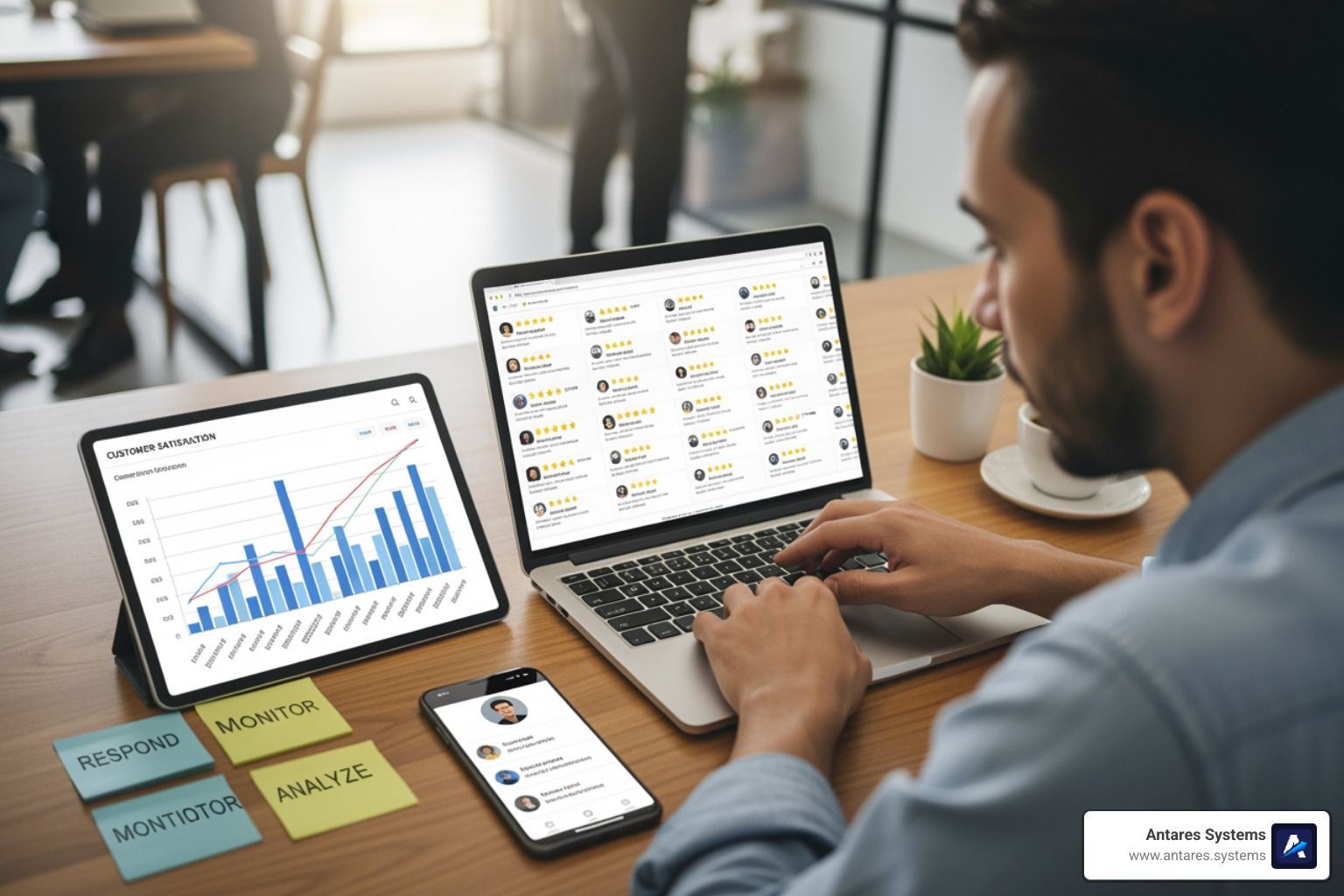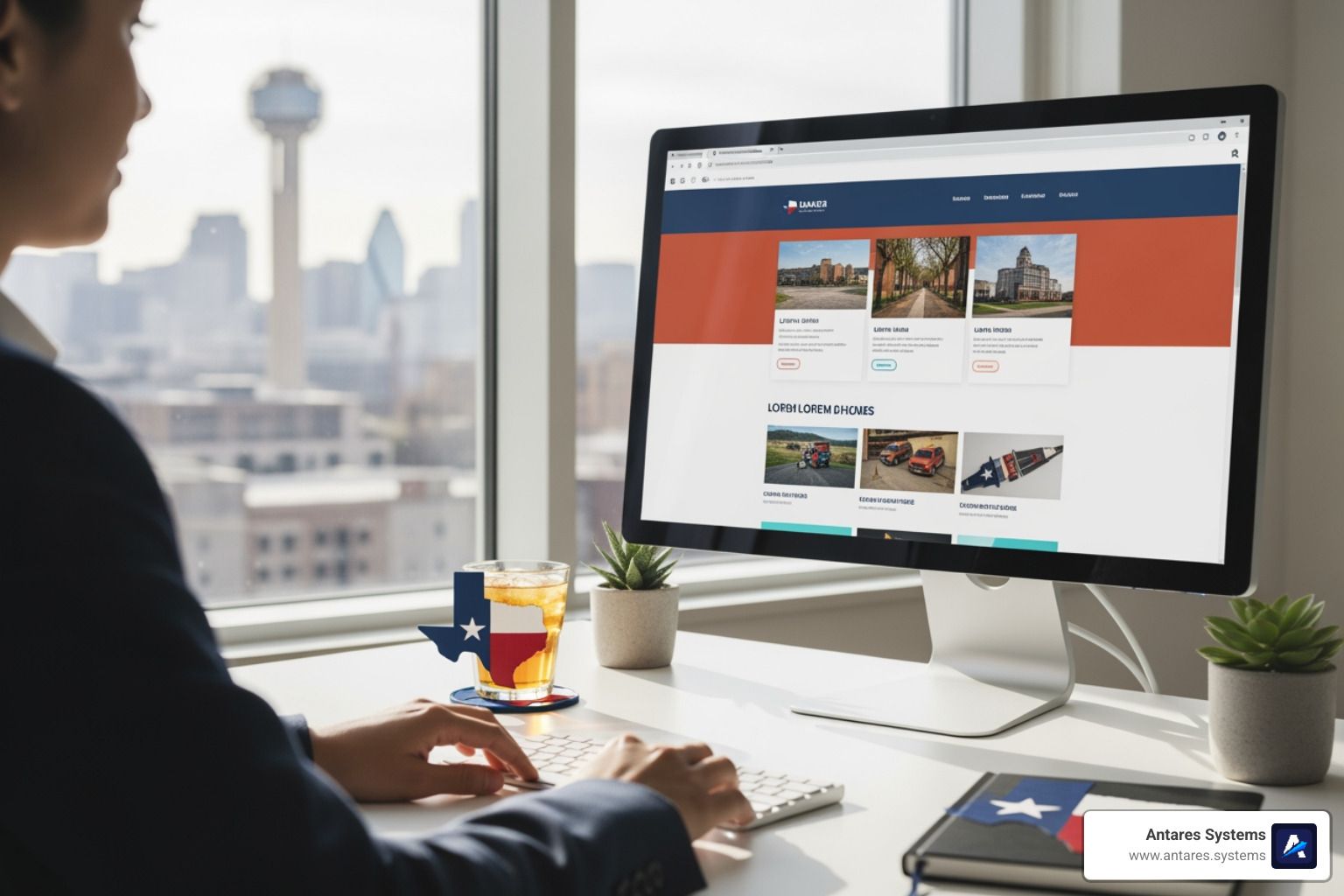How to Perform a Local SEO Audit for Your Business

Performing a Local SEO Audit for Your Business
Do you want to make sure that your business is getting the most out of local SEO? If so, then you need to perform a local SEO audit. This involves evaluating your website and identifying ways that you can improve your search engine rankings. In this blog post, we will discuss the steps that you need to take to conduct a local SEO audit for your business. We will also provide tips on how to improve your website's search engine rankings. Let's get started!
- What are local SEO audits and why should businesses conduct them?
- How to perform a local SEO audit for your business
- On-page SEO
- How to perform an On-Page SEO audit?
- Setting up the tools
- Crawling your website
- Analyzing your data
- Site ranking and organic traffic
- Keyword rankings
- Internal linking structure
- Meta tags
- Site Speed
- Mobile-friendliness
- Keyword research and local SEO
- Making your SEO campaign and action plan
- Off-page SEO
- How to perform an Off-Page SEO audit?
- Evaluate your website's link profile
- Use a variety of tools to track your website's link profile
- Create an action plan to improve your website's off-page SEO
- The benefits of a local SEO audit
- Common mistakes businesses make with their local SEO
- Not claiming and optimizing your business listings
- Not having a keyword strategy
- Not having a mobile-friendly website
- Failing to monitor your online reviews
- The bottom line: Get a free SEO report
What are local SEO audits and why should businesses conduct them?
An SEO audit is an analysis of a website's search engine optimization. It helps identify areas where the site can be improved to rank higher in search engine results pages (SERPs). When referring to local SEO, It's the process of optimizing your online presence to attract more customers from local searches. This is done through a combination of optimizing your website, making sure your online listings are accurate and up-to-date, and building citations from other websites.
Local SEO audits are important for businesses because they can help you identify areas where your website needs improvement. By improving your website's search engine optimization, you can increase your chances of ranking higher in SERPs. This, in turn, can lead to more website visitors and potential customers.
Conducting a site audit can be a daunting task, but it's essential to ensure that your website is optimized for local search. Search engines are constantly changing their algorithms, so it's essential to keep up with the latest trends. Luckily, we're here to help!
How to perform a local SEO audit for your business
SEO audits englobe a variety of elements, but we'll focus on the most important ones for local SEO.
First, you must know that there are two types of SEO audits: on-page and off-page.
On-page SEO
On-page SEO audits analyze your website's content and code to identify ways to improve your website's search engine rankings. This includes evaluating your website's title tags, meta descriptions, header tags, and content.
How to perform an On-Page SEO audit?
Google and other search engines are constantly changing their algorithms, so it's essential to keep up with the latest trends. Luckily, we're here to help!
Setting up the tools
To conduct a local SEO audit, you will need to use a variety of SEO audit tools.
We recommend using Google Analytics and Google Search Console. These tools will help you track your website's traffic and identify areas where you can improve your search engine rankings. An SEO audit tool will help you determine your website's average position in SERPs, click-through rate, site architecture, and more.
You will also need a keyword research tool. This will help you identify the keywords that you should be targeting on your website. We recommend using Google AdWords Keyword Planner.
Once you have these tools set up, you are ready to start your audit!
Crawling your website
Once you have these tools set up, you can begin conducting a basic technical SEO audit.
The first step in conducting a local SEO audit is to crawl your website. This will help you identify any potential issues or errors with your website's code or content that could be preventing you from ranking higher in SERPs. There are a variety of tools that you can use to crawl your website. There are many paid options, but there are also free versions of these tools available.
Crawling your website will help you identify any technical issues that could be preventing your website from ranking higher in SERPs, like broken links, duplicate content, or missing title tags.
Analyzing your data
Once you have crawled your website, you can begin analyzing your website's data.
Once you have crawled your website, you will need to analyze the results. Look for any errors or issues that could be preventing your website from ranking higher in SERPs. If you find any errors, you will need to fix them as soon as possible.
When analyzing your website's data, you should look for any areas where you can improve your website's search engine optimization. Some things that are basic on-page SEO elements that you will want to check are:
Improving your website's search engine optimization will help you rank higher in SERPs, which can lead to more website visitors and potential customers. If you are not sure how to fix the errors that you find, you can always hire an SEO company or consultant to help you.

Site ranking and organic traffic
One of the most important things to track when conducting an SEO audit is your website's ranking in SERPs. You can use a site audit tool like Google Analytics to track your website's average position in SERPs. You should also track your website's organic traffic. This will help you determine if your SEO efforts are paying off.
You can also use a tool like Google Search Console to track your website's click-through rate. This will help you determine if your website is appearing in SERPs and if people are clicking on your listing.
If you notice that your website's ranking or organic traffic is decreasing, it may be an indication that you need to improve your website's SEO.
Keyword rankings
Another important thing to track when conducting an SEO audit is your website's keyword rankings. You can use a keyword research tool like Google AdWords Keyword Planner to track your website's keyword rankings.
When tracking your website's keyword rankings, you should look for any keywords that have a high search volume but a low ranking. These are the keywords that you should be targeting on your website.
Internal linking structure
One of the things that you should check when conducting an SEO audit is your website's internal linking structure. This is the structure of the links on your website. Your website's internal linking structure is important because it helps search engines understand the hierarchy of your website. It also helps users navigate your website. External links should also be checked.
Also, a backlink audit should be carried out to check the quality of links coming in from other websites. This will help you determine if any of the links are low-quality or spammy and should be removed.
Your website's internal linking structure is important because it helps search engines understand your site's structure, as well as how many pages are on your website.
When conducting an SEO audit, you should also check your website's meta tags. Meta tags are the tags that appear in the head section of your website's code. They provide information about your website to search engines.
Some of the meta tags that you should check are the title tag, meta description, and meta keywords tag. You should also check to see if your website's pages are properly indexed by search engines.
The title tag is the most important meta tag. It should be descriptive and include the keyword that you are targeting. The meta description should also be descriptive and include the keyword. The meta keywords tag should include a list of the most important keywords for your website.
You should also check to see if your website's pages are properly indexed by search engines. You can do this by conducting a site:example.com search in Google. This will show you all of the pages Google has indexed for your website. If you notice that some of your website's pages are not indexed, you will need to submit a sitemap to Google. A sitemap is a file that contains a list of all of the pages on your website.
You might want to read: The ultimate guide to optimizing your title tags.
Site Speed
A poor user experience can result in a high bounce rate, which will negatively impact your website's ranking. One of the things you should check on your site when conducting an SEO audit is your website's speed. You can use a tool like Google PageSpeed Insights to check your website's speed.
If you notice that your web page speed is slow, you will need to improve it. You can do this by optimizing your images, minifying your CSS and JavaScript files, and using a content delivery network.
Mobile-friendliness
Another important thing to check when conducting an SEO audit is your website's mobile-friendliness. You can use a tool like Google's Mobile-Friendly Test to check your website's mobile-friendliness.
If your website is not mobile-friendly, you will need to make some changes to your website. You can do this by using a responsive design or by creating a separate mobile version of your website.
Keyword research and local SEO
Your site's SEO can be improved by optimizing your website's pages for the keywords you are targeting. This can be done by using the keyword in the title tag, meta description, meta keywords tag, and throughout the content of your page.
You can also improve your website's SEO by optimizing your images. You should make sure to include relevant keywords in the file name and alt text of your images. Creating quality content is also an excellent way to do it. Content should be well-written, informative, and keyword-rich.
Keyword research tools, such as Google AdWords Keyword Planner and Moz's Keyword Explorer, can be used to find keywords that are relevant to your business. For Local SEO, you should also focus on including keywords that are relevant to your location. Your target keyword should be included in your website's title, meta description, and throughout the content of your pages.
Based on the things you find during your audit, you can create an action plan to improve your website's search engine optimization. This plan should include things like fixing any errors that you find, improving your website's title tags and meta descriptions, and adding more keywords to your website's content.
Making your SEO campaign and action plan
Once you have analyzed your website's data, you can begin making changes to improve your website's SEO. For this, you must make a campaign and action plan.
Your SEO campaign should include the goals that you want to achieve with your SEO efforts. For example, if you want to increase your website's traffic, you would want to include that as a goal in your campaign.
Your action plan should include the steps that you need to take to achieve your campaign's goals. For example, if one of your goals is to increase your website's traffic, your action plan might include steps like adding more keywords to your website's content, improving your website's title tags and meta descriptions, or fixing any errors that you find during your audit.
Technical SEO audits can lead to a lot of data and information, so every strategy and action should have a purpose, and can vary depending on what you find and your goals, however, there are some basic tasks that every SEO strategy should include. These tasks are:
- Crawling your website to identify any technical errors or issues that could be preventing you from ranking higher in SERPs
- Analyzing your website's data to identify any areas where you can improve your SEO
- Making changes to your website based on the things you find during your audit
- Creating a strategy to improve your website's SEO
If you follow these steps, you will be well on your way to conducting a successful local SEO audit for your business. Remember, an audit is an important part of any SEO strategy, so make sure to schedule one for your website regularly.
Once you have created your campaign and action plan, you can begin making changes to your website. Remember to track your progress and results so that you can see how your efforts are paying off.
Off-page SEO
Off-page SEO, also known as Off-site SEO audits evaluates your website's link profile. This includes evaluating the quality and quantity of links that are pointing to your websites, like backlinks, social signals, and local citations.
How to perform an Off-Page SEO audit?
Conducting an off-page SEO audit is a bit more difficult than conducting an on-page SEO audit. This is because you will need to use a variety of tools to track your website's link profile, as well as the link profiles of your competitors.
Based on the things you find during your audit, you can create an action plan to improve your website's off-page SEO. This plan should include things like building more backlinks, improving the quality of the backlinks that you have, and increasing your social media activity.
By conducting an SEO audit, you can create a campaign and action plan to improve your website's search engine optimization. This will help you rank higher in SERPs, which will result in more traffic to your website. Remember to track your progress and results so that you can see how your efforts are paying off.
Evaluate your website's link profile
If you want your website to rank well in organic search, it's important to take a close look at your link profile. In general, links from high-quality websites are more valuable than links from low-quality websites.
However, there are a few other factors to consider as well. For example, links from websites that are relevant to your niche are often more valuable than links from unrelated websites. Additionally, links from websites that are popular in your target market can help to boost your organic search ranking. So, if you're looking to improve your website's organic search ranking, take some time to evaluate your link profile and identify opportunities for improvement.
How do you do this? You can use a variety of tools to track your website's link profile, as well as the link profiles of your competitors. Once you have this data, you can analyze it to identify areas where you can improve your SEO.
Use a variety of tools to track your website's link profile
As we mentioned, conducting an off-page SEO audit is a bit more difficult than conducting an on-page SEO audit. This is because you will need to use a variety of tools to track your website's link profile, as well as the link profiles of your competitors.

Some of the things that you will want to look for when conducting an off-page SEO audit are:
- The number of backlinks pointing to your website
- The quality of the websites that are linking to your website
- The anchor text of the links pointing to your website
- The social signals pointing to your website
- The number of local citations pointing to your website
- Broken backlinks pointing to your website
- Social media profiles that link to your business
Some of the tools that you can use to track this information are:
Once you have all of this information, you can begin to create an action plan to improve your website's off-page SEO. This may include things like building more backlinks, improving the quality of the backlinks that you have, and increasing your social media activity. Remember to track your progress and results so that you can see how your efforts are paying off.
Create an action plan to improve your website's off-page SEO
To create an action plan, first, you need to evaluate your business goals and objectives. From there, you can begin to create a plan of action that will help you achieve those goals.
You must ask yourself:
- What are my goals and objectives?
- Who is my target audience?
- What type of content will appeal to my target audience?
- Where does my target audience spend their time online?
Once you have answered all the information you need to start climbing up in those local search engine results pages. Don’t wait – get started today!
If you need help with your local SEO audit, our team of experts at Antares Systems is here to help. We’re a full-service digital marketing agency that specializes in SEO, social content, social media marketing, and more! We’d be happy to answer any questions you have. Contact us today to get started!
Once you have answered these questions, you can begin to create an action plan. The needs may vary, but some common action items that you may want to consider are:
- Local content marketing: This involves creating content that is relevant to your local market. This can be done through blog posts, articles, press releases, and more.
- Social media marketing: This involves creating social media profiles and engaging with your target audience through these platforms.
- Link building: This involves reaching out to other websites in your industry and securing links back to your website. Both external and internal links are important.
- Local citation building: This involves claiming and optimizing your local business listings on directories like Yelp, Google My Business, and more. This will help the site search engines that your business is legitimate and increase your visibility in local search results.
By taking the time to perform an off-page SEO audit, you can identify opportunities for improvement. Doing so will help you to boost your website's organic search ranking and increase traffic to your site.
Take some time to evaluate your link profile and identify opportunities for improvement.
The benefits of a local SEO audit
Now that we've gone over how to perform a local SEO audit, let's take a look at some of the benefits that you can enjoy by doing so.
A local SEO audit can be a valuable tool for any business that relies on local customers for its revenue. By auditing your website and its content, you can identify areas where you are not optimized for local searches. This, in turn, can help you to make the necessary changes to improve your ranking in local search results. In addition, a local SEO audit can help you to identify any potential negative reviews or listings that could damage your reputation. By monitoring your online presence and taking proactive steps to improve your visibility, you can help ensure that your business can attract and retain local customers.
By conducting a local SEO audit, you can:
- Improve your website's organic search ranking
- Increase traffic to your website
- Gain insights into your link profile
- Identify opportunities for improvement
- Boost your local visibility
All of these benefits can help to improve your bottom line. By improving your organic search ranking, you can increase the number of people who see your website. This can lead to more traffic and, ultimately, more sales.
Common mistakes businesses make with their local SEO
While a local SEO audit can be beneficial for any business, there are some common mistakes that businesses make when it comes to their local SEO.
Not claiming and optimizing your business listings
One common mistake businesses make with their local SEO is failing to claim their business listing on Google My Business. This is a critical step in local SEO, as it verifies your business and helps you show up in search results.
Business listings can be claimed for free on several different platforms, including Google My Business, Yelp, and more.
Another common mistake businesses make is failing to optimize their business listings. This includes listing incorrect or outdated information, using generic descriptions, and not including photos or videos. Finally, don't forget to keep your business listing up-to-date. If your hours or address change, be sure to update your listing so that potential customers can find you. By avoiding these common mistakes, you can set your business up for success with local SEO.
All of these factors can impact your ranking in local search results. By taking the time to claim and optimize your business listings, you can help ensure that your business is visible to potential customers.
Not having a keyword strategy
Another common mistake is not including relevant keywords in your general SEO strategy. Be sure to include keywords that describe your business and its location, as this will help you show up when customers are searching for businesses like yours.
Not having a mobile-friendly website
In today's day and age, it's critical to have a mobile-friendly website. With more and more people using mobile devices to access the internet, it's important to ensure that your website is optimized for these users.
A mobile-friendly website is easy to use and navigate on a mobile device. This includes having a responsive design, large font sizes, and easy-to-click buttons. Having a mobile-friendly website can improve your ranking in mobile search results.
Failing to monitor your online reviews
Online reviews can have a big impact on your business, both positive and negative. That's why it's important to monitor your online reviews and take steps to encourage positive reviews.
One way to do this is by responding to all of your reviews, both positive and negative. This shows potential customers that you are active and engaged with your customers. It also allows you to address any negative reviews and turn them into positive experiences.
Another way to encourage positive reviews is by offering incentives. This could be a discount for a further purchase, free shipping, or anything else that would entice customers to leave a review. Just be sure to not offer incentives for positive reviews, as this could lead to fake reviews.
By taking the time to monitor your online reviews, you can help improve your local SEO.
The bottom line: Get a free SEO report
A local SEO audit is a perfect way to find out where your business stands when it comes to local searches. Not only will you be able to identify areas of improvement, but you’ll also learn about the mistakes you may have been making with your local SEO strategy. By taking advantage of our free Local SEO report, you can get started on the path to success.
If you still have questions about how to perform a local SEO audit or what factors to consider, our team of experts can help. We’ve helped businesses of all sizes with their local SEO, and we’re ready to help you too. At Antares Systems, we’re always here to help you grow your business with Local SEO Services, Social Media Marketing, Social Content and more. Contact us today to learn more about our services.








